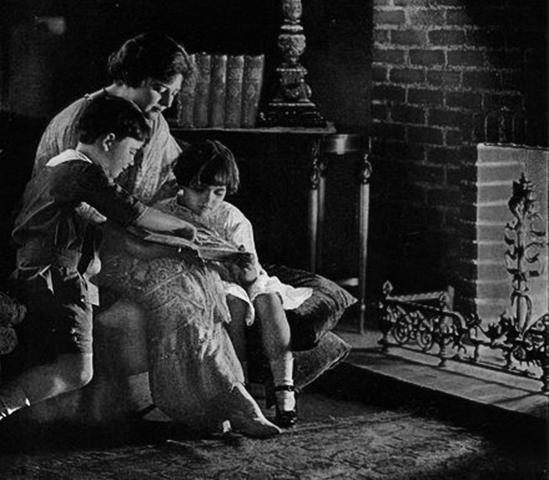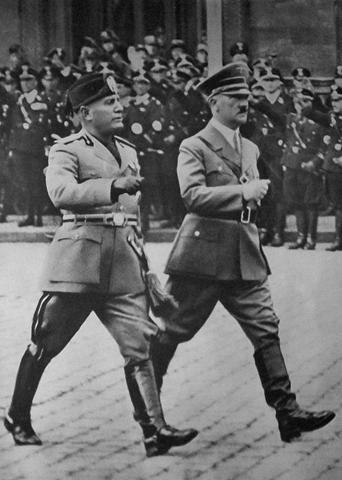Once upon a time, there was a genre of short stories that included magical characters, such as trolls, witches and David Copperfield. These fanciful beasts were mixed with real creatures, such as porridge-eating bears, to create compelling stories designed to entertain adults and terrify children.

While the Walt Disney Company claims to have invented the fairy tale, the genre’s real origin and definition are more difficult to discover. The stories are always set a long time ago in a place, e.g. a galaxy, far, far away. Their length is always short and should never extend beyond a trilogy. Some storytellers have unsuccessfully attempted to stretch fairy tales to as long as three boxed sets.

The expressions “fairy tale ending” and “fairy tale romance” are used to describe events that result in eternal bliss for everyone involved. This is despite the fact that most fairy tales do not have happy endings.
Goldilocks and the three bears ends with Goldilocks escaping scot-free after committing a crime spree.
In Little Red Riding Hood, the wolf falls victim to an axe-wielding maniac after a lesson in forest safety goes horribly wrong.
The tale of the Frog Prince ends when the princess, having kissed the frog, contracts a water-borne disease and dies.
Once upon a time, there was a little boy who had a nice flower. Merrily, he made his way through the streets of town looking for someone to give the nice flower to. It should be easy, after all, it was a nice flower.
The boy met a fishmonger. “Trout?” inquired the fishmonger. The boy didn’t like fish, so he politely declined the offer. He thought the fishmonger might see the nice flower and ask to have it. He didn’t, so the boy said in a big voice “Would you like this nice flower?” The fishmonger didn’t want the nice flower, and the boy walked away in shock. How could anyone not want a nice flower?
Next, the boy met a waitress, who was taking a break from her busy day at work. Again, she didn’t immediately ask for the flower. This time the boy was ready: he offered her the nice flower in no uncertain terms. “What for?” she asked. The boy didn’t have an answer because it wasn’t for anything: it was a nice flower. She remained unconvinced and returned to her work.
This was disappointing for the boy, but now he had learned that he had to ask people if they wanted the flower, and he had to give them a list of one or more good reasons to take it. This was a lot harder than he had expected.
The boy passed a group of children playing in the street. They teased him for carrying around a nice flower. He decided they were jealous and moved quickly on.
Later that day, still holding the nice flower, the boy met an old man sitting on the step in front of his house. “That’s a nice flower” said the old man. He was right. The boy asked the old man if he wanted the flower. He did. Just to make sure, the boy asked the old man if he needed a list of one or more good reasons to take the nice flower. He did not. After all, it was a nice flower.
The boy gave the old man the nice flower, and they were both quite pleased with the transaction. They lived happily ever after.
There are many terms to describe a group of humans: club, cohort, clique, coterie, chorus and cabal, to name a few. The most common human group is the family. It is the default group into which most humans are born. Families are so common that familyless humans are rare in the wild. They only occur in events such as,
being orphaned (because of parental death or societal wrath),
wide-scale political upheaval, or
choice.
Most families are formed when a mummy human and a daddy human, who love each other very enough, engage in sexual intercourse to produce children.

Creating its own children is often the only method a human will employ to create a family. Some humans worry this one-family policy is a reckless gamble: who can say if one’s own children will be worthwhile? To manage this risk, upon completing an initial starter family, many adult humans pair together to form auxiliary families. This has become common because society and law no longer enforce the traditional family format of mother, father and zero or more children. A modern, up-to-date family may consist of,
one or more fathers,
one or more mothers, and
zero or more children.

Regardless of their reason for creating a family - legal, financial or otherwise - the group is then obligated to spend significant amounts of time together. Most of this time occurs naturally due to the family’s cohabitation, but some of it must be mandated quality time. This is time spent for the sole purpose of forcing love to naturally develop between family members. It must occur at least once a week and may be spent in activities such as,
sharing a long, boring meal in which each family member describes its long, boring day,
going for a long, boring walk in a long, boring park, and
visiting a long, boring elderly relative who tells long, boring stories about its long, boring life.
Humans like to look good and are willing to spend as much as all of their money pursuing this goal. The primary technique humans use to achieve their perfect look is the acquisition and application of fashion directly to the skin. Every season on catwalks around the world, new styles of shoes, clothing and self-loathing are declared “in fashion.” Thus, they become the must-have items for fashonistas, who have historically been known as fashists.

Obviously, humans are capable of forming their own opinions about what they wear and what looks good. But, in order to save time, they turn to fashion magazines for advice on the latest trends. These glossy mags keep humans up to date with articles like,
Orange, It’s the New Black,
What’s Hot and What’s Not, and
Red, It’s the New Black.
The fashion value of a piece of clothing is measured using the standard international unit, the chiffon. The more fashionable an item is, the higher its chiffon value. The more dowdy the item, the lower its chiffon value. Unless dowdy is in this season. Consult your favourite fashion mag for current trends regarding dowdiness.

The right outfit will help you look your best this summer, unlike last summer when, paradoxically, the right outfit made you look worse. Go figure! The point is that clothes are where it’s at this summer. Get some!
Remember, looking good doesn’t mean you should compromise your health too much. The Sun can kill, especially if you are fired into it. Also, sun damage is the number one reason for looking like an old, discarded leather bag. No one wants that, least of all your lady friends and dermatologist. When buying clothes, be safe and consider more than just how expensive they are, although expensive clothes are very a la mode this season.

Throughout history, humans have unlocked many great political achievements. Sexual equality is not one of them. No one can deny that humans have tried really, really hard to make the status of women equal to the status of men, but the struggle for natural and unasked-for equality goes on. This struggle is called feminism.
Feminists have fought every step of the way for women to be respected as much as men, but treating a woman like a human being is apparently really hard. There are many examples of continued prejudice:
Women are paid less than men for doing the same job.
Less than 10% of company directors are women.
Women still give birth to the vast majority of babies.
The poor progress of feminism is due to two things. First, the manly amount of confusion about what feminism is. And second, who the best feminists are. The nominees for best feminist are,
Simone de Beauvoir,
Madonna,
The Pink Power Ranger, and
The Madonna.
With the award for best feminist being announced at the next Oscars Night, we can focus on sorting out the confusion about what feminism is.
To get a helpful definition, it is better to consider the verb form of the feminist movement, feminise. If we define the feminist movement as the movement to feminise, two questions arise.
What does it mean to feminise something?
What needs feminising?
Question two is easier to answer. What needs feminising are the conventions of human society. Presently, the way things are done is too masculine, and this imbalance creates problems, e.g. not enough Pink Power Rangers. Restoring balance between the male and female way of doing things would make life better for all.1
The first question - what does it mean to feminise something? - is more debatable. It could mean replacing some men with women in certain roles to create a 50-50 split. Instead of an all-male domination of society’s dominating roles, there would be equality amongst dominators. E.g. A company’s board of directors must include three pink Power Rangers, and one each of red, green and blue.
If current male roles are redistributed 50-50, or even to 100% female, society would be dominated by a different group. This doesn’t solve a major problem that feminism could solve, the domination of women. It still exists, just with different dominators. Replacing half the men with women while everything else remains the same does not solve the underlying problem, domination. And this is domination not just of women by men, but of anyone by anyone. Something is needed to balance the excessive domination, not just redistribute it.
The opposite of domination is yielding, letting go of control in the face of resistance. If it is the masculine nature to dominate, it may be the feminine nature to yield. With a bit of feminising to encourage more yielding within society and within each human, everyone will find it easier to get on.2
“Know the strength of man, But keep a woman’s care!” - Tao Te Ching, Translated by Gia-fu Feng and Jane English
In the good old days, humans were a saleable commodity, like scrimshaw, ambergris and whale blubber. A farmer, who was bringing in a particularly bountiful crop one season, could visit his local market and purchase as much human suffering as he needed to get the job done. Once purchased and assembled, these “people” could be made to work all day for no money.
Very few modern humans are willing to work all day for no money, unless they are one of those rare specimens who still happen to believe in something. Nowadays, humans want more choices than unpaid servitude, and they call the ability to exercise their choices “freedom.” A free human will be able to make choices about,
how it spends its spare time,
who it does work for, and
who it does for work.
Generally, society has become more free. This has led to a wider range of choices. For example, there are so many types of shampoo that choosing one has become a baffling ordeal. However, not every human is free to be choosey.
Some subsets of humans have their freedoms restricted for various reasons that are far too interesting to be repeated here. This means that members of these groups are not able to exercise choice about who they work for, or whether or not they need volumising conditioner.3 Fortunately, for these disenfranchised plebs there is a small amount of freedom that can never be taken from them: their inner freedom to choose how they respond to any situation.
“[Inner freedom] refers to the extent to which a person is guided in his actions by his own considered will, by his reason or lasting conviction, rather than by momentary impulse or circumstance.” - Friedrich Hayek
This type of freedom lets a human choose how it responds to its circumstances, even when it has no control over those circumstances. The cost of exercising inner freedom may be very high - possibly including losing one’s life - but it is a freedom that is always available, even in the most oppressive situation.
The freedom fighters have advanced through the city with their improvised weaponry. They fashioned catapults from playground equipment and a machine gun from old cars. I saw one man playing a tuba made from an old woman. They came within five hundred feet of the palace before being repelled by the high entry price.
They have retreated for now while they scrape together their loose change, but I fear the democratically-elected government will not hold out for long. It is inevitable that these freedom fighters will prevail in their fight against freedom. Their promise of severe oppression for the masses is now a real and imminent threat.